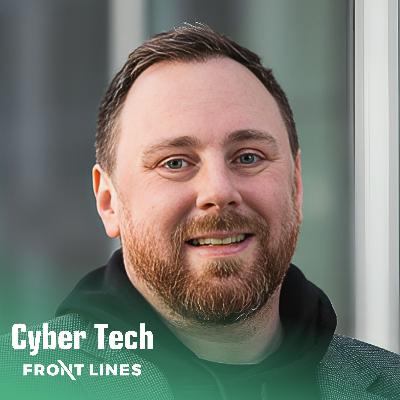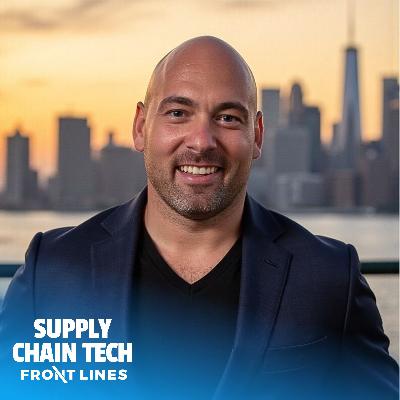How Wultra built category leadership as the only post-quantum provider for banking digital identity | Peter Dvorak
Description
Wultra provides post-quantum authentication for banks, fintechs, and governments—protecting digital identities from emerging quantum computing threats. In this episode, Peter Dvorak shares how he broke into the notoriously closed banking ecosystem by leveraging his early experience in mobile banking development. From navigating multi-stakeholder enterprise sales to positioning quantum-safe cryptography when the threat timeline remains uncertain (consensus: 2035, but could accelerate), Peter reveals the specific strategies required to sell mission-critical security infrastructure to regulated financial institutions.
Topics Discussed
- How post-quantum cryptography runs on classical computers while protecting against quantum threats
- Why European banking regulation drives global authentication standards
- The multi-stakeholder sales process: quantum threat teams, CISOs, CTOs, and digital product owners
- Conference strategy and analyst relationships (Gartner, KuppingerCole) for category positioning
- Banking budget cycles and why June/July approaches fail
- Breaking the "who else is using this?" barrier with banking-specific proof points
- Positioning as the only post-quantum cryptography provider for digital identity in banking
GTM Lessons For B2B Founders
- Layer future-proofing onto immediate ROI: Post-quantum cryptography doesn't require quantum computers to function—it runs on classical infrastructure while providing superior security. Peter sells banks on moving from SMS OTP to mobile app authentication (tangible, immediate benefit) while positioning quantum resistance as migration insurance: "You won't have to rip-and-replace in three years." For emerging tech, anchor value in today's operational wins, not future scenarios.
- Give struggling departments concrete wins: Large banks have quantum threat teams tasked with replacing every piece of software by 2030-2035. Peter gives them measurable progress: "We move you from 5% to 10% completion on authentication and digital identity." These teams need defensible projects to justify their existence. Identify which internal groups are fighting for relevance and deliver projects they can report upward.
- Banking references are binary gatekeepers: Every bank asks "who else is using this?" Non-banking customers (telcos, gaming, lottery) don't count—banking regulation and systems are fundamentally different. The first banking customer is the hardest barrier. Once cleared, subsequent conversations become tractable. Budget aggressively to land that first bank, even at unfavorable terms.
- Respect the annual budget cycle: Banks allocate resources 12 months ahead. Approaching in Q2/Q3 means budgets are locked—even free POCs fail because internal resources are committed. Peter's pipeline strategy: build relationships and maintain visibility throughout the year, then activate when budget windows open. Don't confuse market education with active pipeline.
- Map and sequence multi-stakeholder buys: Authentication purchases require alignment across quantum threat teams (if they exist), cybersecurity/compliance, CTO/CIO (infrastructure acceptance), and digital product owners (UX concerns affecting their KPIs). Start at director level—board executives are too removed from technical details. Research each bank's org structure before engaging, then tailor sequencing.
- EU regulatory leadership creates expansion vectors: European regulations like PSD2 and strong authentication requirements get replicated in Southeast Asia, MENA, and other regions. Peter benefits from solving EU compliance first, then riding regulatory diffusion. The US remains fragmented with smaller regional banks still using username/password. Founders should analyze which geographies lead regulatory adoption in their category.
- Maintain composure through 18+ month cycles: Peter's regret: losing his temper during negotiations cost him time. Banking doesn't buy impulsively—sales require patience through lengthy security reviews, compliance checks, and committee approvals. Incremental progress and rational positioning matter more than aggressive closing. Emotional control is operational discipline.
//
Sponsors:
Front Lines — We help B2B tech companies launch, manage, and grow podcasts that drive demand, awareness, and thought leadership. www.FrontLines.io
The Global Talent Co. — We help tech startups find, vet, hire, pay, and retain amazing marketing talent that costs 50-70% less than the US & Europe. www.GlobalTalent.co
//
Don't Miss: New Podcast Series — How I Hire Senior GTM leaders share the tactical hiring frameworks they use to build winning revenue teams. Hosted by Andy Mowat, who scaled 4 unicorns from $10M to $100M+ ARR and launched Whispered to help executives find their next role.
























